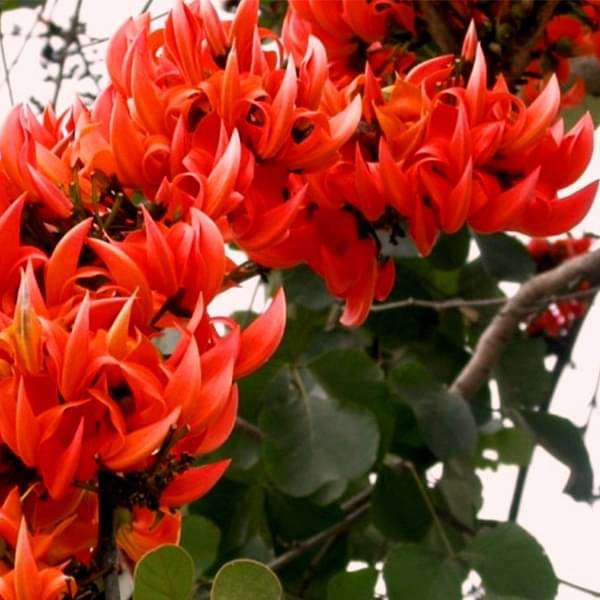
Palash, Butea - Plant
(MRP Inclusive of all taxes)
- Shipping ₹79 for entire order
- Dispatch in 7 days
- Country of origin: India

(MRP Inclusive of all taxes)
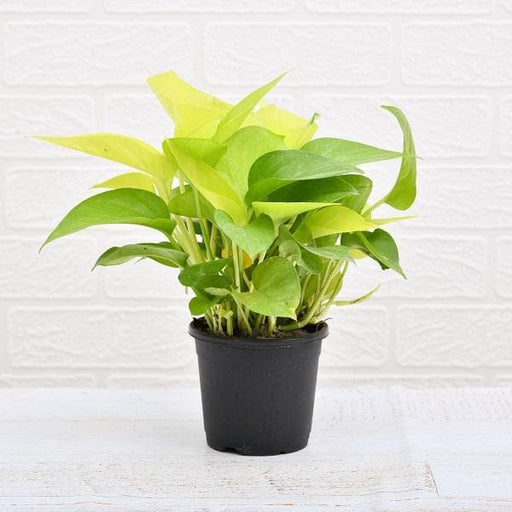 Save 29%
Save 29%
Air Purifier Money Plant with Pot The Air Purifier Money Plant, also known as Pothos or Epipremnum aureum, is a stunning indoor plant that...
View full details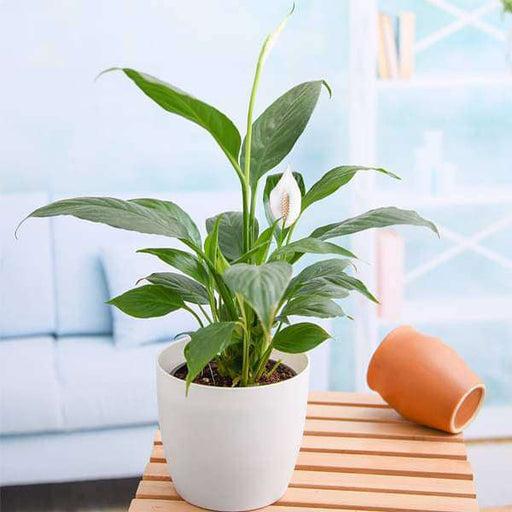
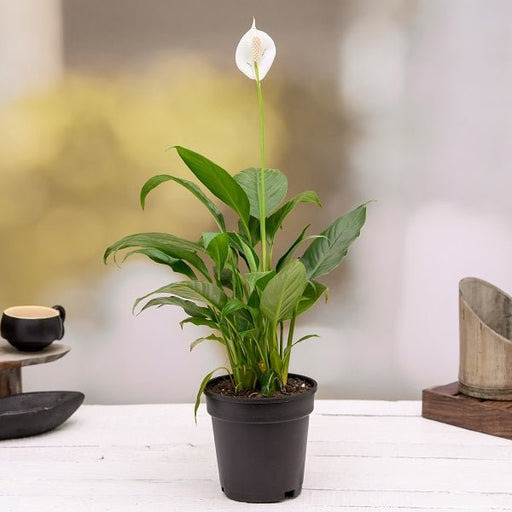 Save up to 15%
Save up to 15%
Peace Lily, Spathiphyllum - Plant The Peace Lily, scientifically known as Spathiphyllum, is a stunning houseplant celebrated for its elegant white...
View full details
 Save 25%
Save 25%
Jasminum sambac, Mogra, Arabian Jasmine - Plant Jasminum sambac, commonly known as Mogra or Arabian Jasmine, is a fragrant flowering plant...
View full details
 Save 18%
Save 18%
Combo Constituents Includes the Parijat Tree (Night-Flowering Jasmine), a culturally significant plant with fragrant flowers. Description The Pari...
View full details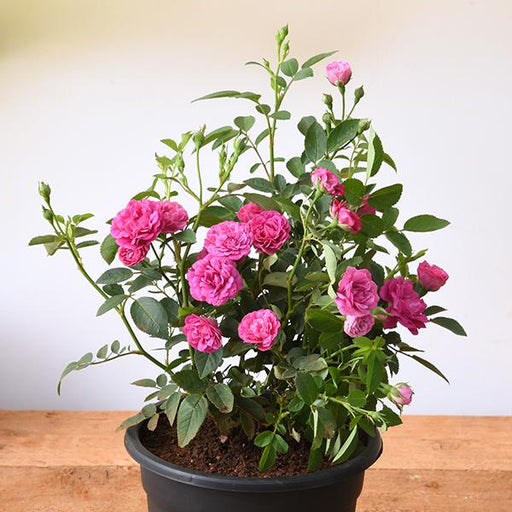
 Save 25%
Save 25%
Miniature Rose, Button Rose (Any Color) - Plant The Miniature Rose, also known as the Button Rose, is a charming and compact flowering plant that ...
View full details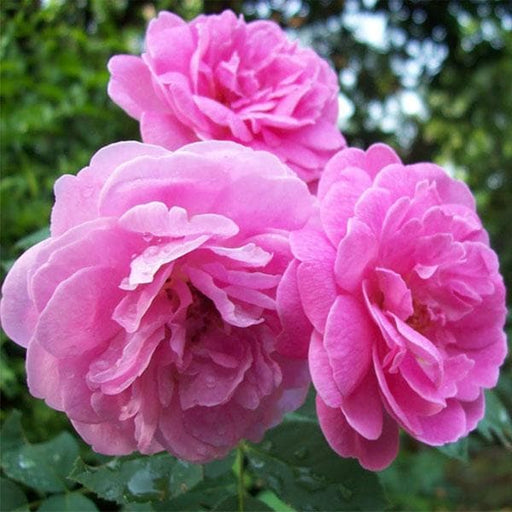 Save 25%
Save 25%
Damascus Rose, Scented Rose (Any Color) - Plant The Damascus Rose, also known as Rosa damascena, is a timeless symbol of beauty and romanc...
View full details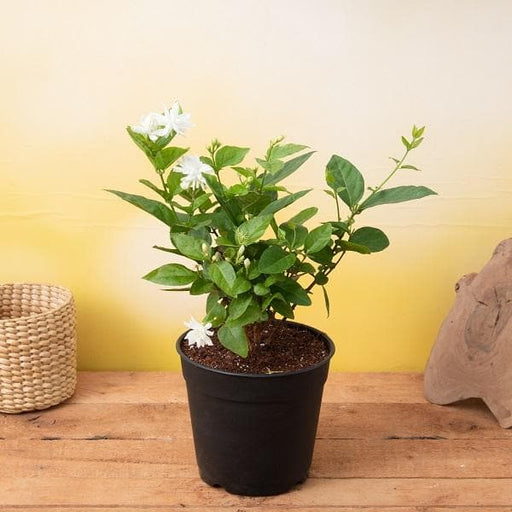
 Save 17%
Save 17%
Beautiful Fragrant Mogra, Arabian Jasmine Plant with Pot The Beautiful Fragrant Mogra, also known as Arabian Jasmine (Jasminum sambac), is...
View full details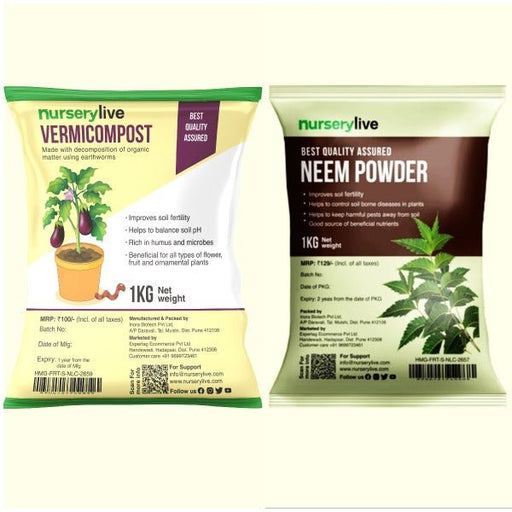 Save 15%
Save 15%
Pack of Vermicompost and Neem Cake for House Plants Transform your indoor garden with our premium Pack of Vermicompost and Neem Cake, spec...
View full details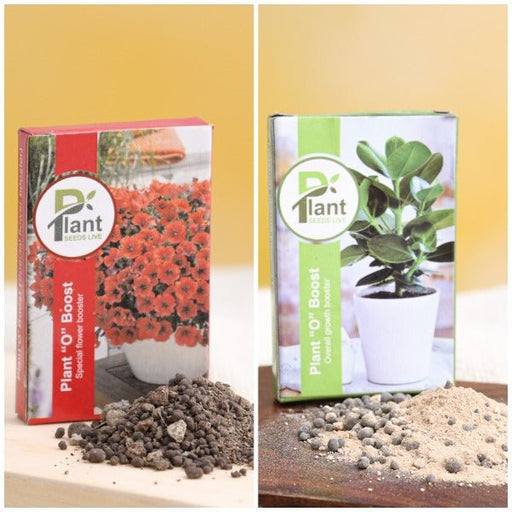
Pack of Plant Growth and Flower Boosters Unlock the full potential of your garden with our Pack of Plant Growth and Flower Boosters! This ...
View full details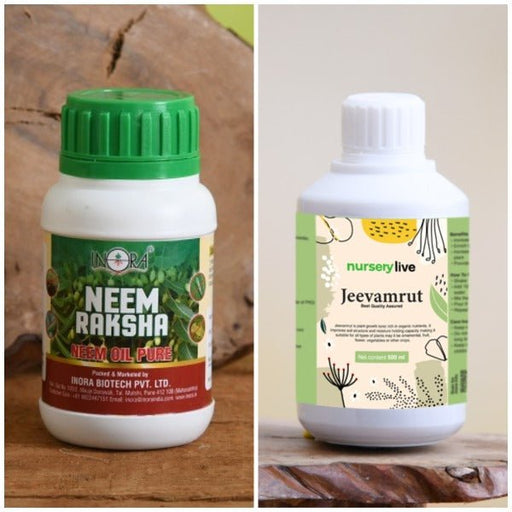 Save 38%
Save 38%
Combo of Jeevamrut and Neem Raksha for Easy Growth and Protection of Houseplants Transform your indoor garden with our exclusive combo of ...
View full details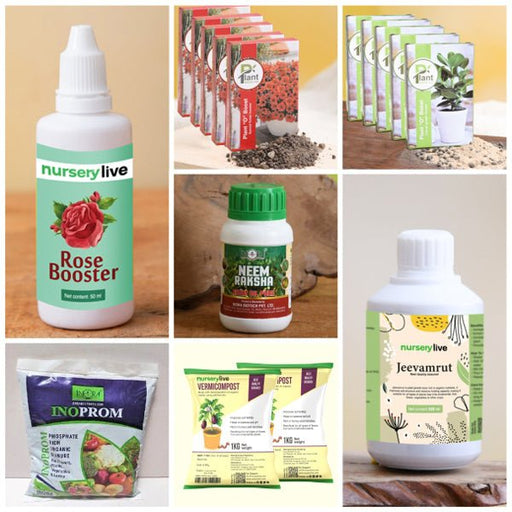 Save 22%
Save 22%
Plant Nutrients Kit (Pack of 16) for a Healthy Garden Transform your garden into a lush paradise with our Plant Nutrients Kit, featuring 1...
View full details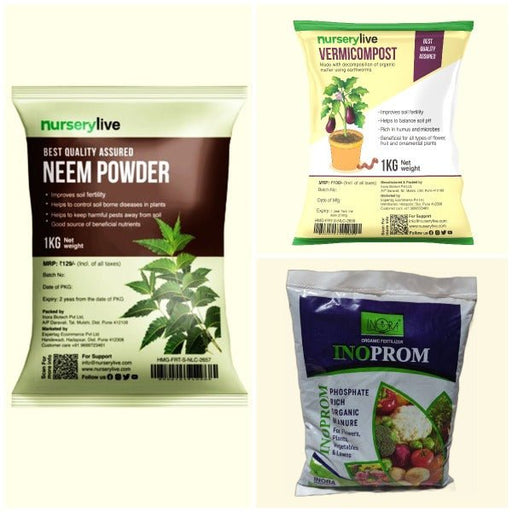 Save 16%
Save 16%
Combo of Top Plant Fertilizers Elevate your gardening game with our exclusive Combo of Top Plant Fertilizers, featuring two bags of premiu...
View full details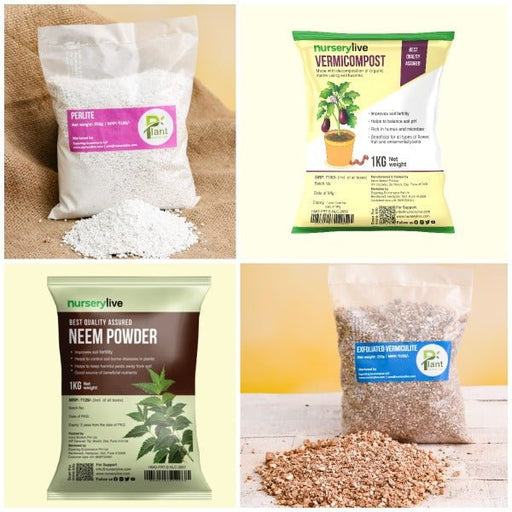 Save 24%
Save 24%
Pack of 4 Additives to Make Soil Healthy and Nutrient Rich Transform your garden into a thriving ecosystem with our Pack of 4 Additives de...
View full details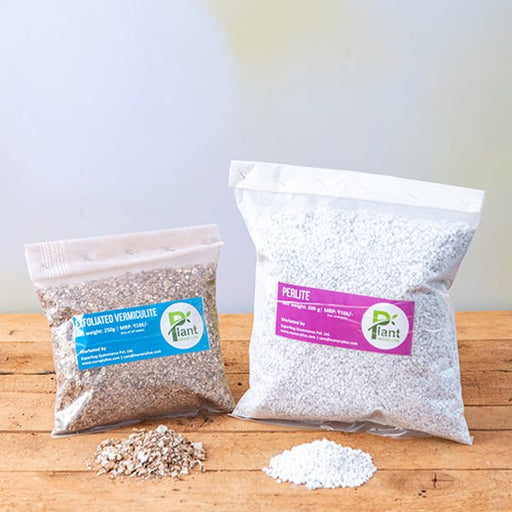 Save 30%
Save 30%
Transform your gardening experience with our premium Combo of Perlite and Vermiculite. This unique blend is designed to enhance soil aeration and ...
View full details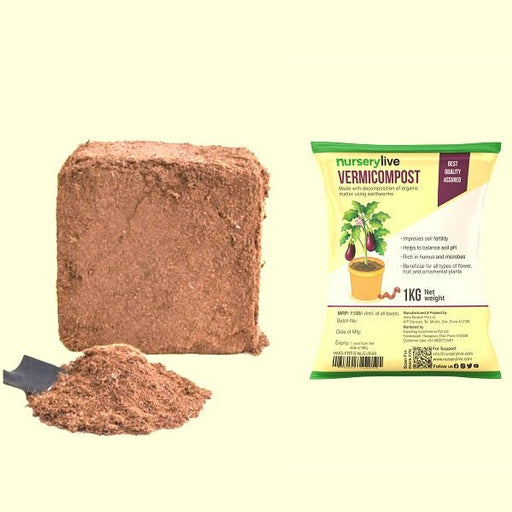 Save 27%
Save 27%
Combo of 2 Vermicompost and Cocopeat - Enrich Your Soil Naturally! Transform your garden into a thriving ecosystem with our Combo of 2 Ver...
View full details
 Save 35%
Save 35%
Best 6 Plants for Perfect Indoor Garden Transform your living space into a lush oasis with our curated collection of the Best 6 Plants for a...
View full details
 Save up to 50%
Save up to 50%
Mini Succulent Garden Pack Transform your space with our Mini Succulent Garden Pack, featuring a delightful collection of 4 any variety beautiful s...
View full details
 Save 30%
Save 30%
5 Best Fragrant Plants Transform your garden or indoor space into a fragrant paradise with our curated selection of the 5 Best Fragrant Plants. Th...
View full details
 Save 24%
Save 24%
Set of 2 Bonsai Looking Grafted Adeniums Transform your indoor or outdoor space with our exquisite Set of 2 Bonsai Looking Grafted Adenium...
View full details Save 45%
Save 45%
Top 4 Die Hard Succulents Pack Transform your indoor or outdoor space with our Top 4 Die Hard Succulents Pack, featuring a curated selecti...
View full details
 Save 30%
Save 30%
5 Best Indoor Plants Pack Transform your living space into a lush oasis with our '5 Best Indoor Plants Pack.' This carefully curated collection fe...
View full details
 Save 25%
Save 25%
Set of 4 Evergreen Air Purifier Plant Pack Transform your indoor space into a lush, green oasis with our Set of 4 Evergreen Air Purifier Pla...
View full details| SrNo | Item Name |
|---|---|
| 1 | Palash, Butea - Plant |
The Palash, scientifically known as Butea monosperma, is a stunning deciduous tree native to the tropical and subtropical regions of the Indian subcontinent. Renowned for its vibrant orange flowers, this plant not only adds aesthetic value to gardens but also plays a crucial role in local ecosystems. The Palash tree is often referred to as the "Flame of the Forest" due to its fiery blossoms that bloom in the spring, attracting a variety of pollinators.
What makes the Palash special is its cultural significance and ecological benefits. In many Indian traditions, the flowers are used in religious ceremonies, symbolizing purity and devotion. Additionally, the tree is known for its medicinal properties, with various parts being utilized in traditional Ayurvedic medicine for treating ailments such as respiratory issues and skin disorders.
One of the standout features of the Palash is its ability to thrive in poor soil conditions, making it an excellent choice for reforestation and soil conservation efforts. Its deep root system helps prevent soil erosion, while its foliage provides shade and habitat for wildlife, contributing positively to the environment.
The Palash tree, also known as Butea monosperma, is not just a pretty face in the botanical world. This tree is a powerhouse of benefits! From its vibrant orange flowers that can brighten even the dullest of days to its medicinal properties that have been cherished in traditional medicine, the Palash tree is a multitasker. It’s like the Swiss Army knife of trees—offering shade, beauty, and health benefits all in one. Plus, it’s a favorite among bees, making it a pollinator’s paradise. Who knew a tree could be so generous?
Caring for a Palash tree is like nurturing a diva—she needs attention but rewards you with stunning blooms. This tree thrives in well-drained soil and loves the sun, so make sure to give her a sunny spot to shine. Watering is essential, but don’t drown her; she prefers a light drink. Pruning is also key to keeping her in shape, ensuring she doesn’t get too wild. With a little love and care, your Palash tree will be the talk of the garden!
The Palash tree is the ultimate overachiever in the plant kingdom. Its flowers are not just eye candy; they’re used to make natural dyes, adding a splash of color to fabrics. The leaves can be crafted into eco-friendly plates, making it a sustainable choice for the environmentally conscious. And let’s not forget the wood, which is durable and often used in furniture making. With so many uses, the Palash tree is like the tree version of a jack-of-all-trades!
In many cultures, the Palash tree is a symbol of love and devotion. Its fiery flowers are often associated with the arrival of spring, representing renewal and new beginnings. In Hindu mythology, the tree is sacred and is linked to various deities, making it a spiritual icon. So, if you’re looking to add a touch of romance or spirituality to your garden, planting a Palash tree might just do the trick. It’s like having a little piece of mythology right in your backyard!
The Palash tree is a true survivor, thriving in dry and arid regions where other plants might throw in the towel. It’s like the tough kid on the block who can handle anything life throws at it. Found in parts of India and Southeast Asia, this tree prefers sandy or rocky soils and can withstand drought conditions. Its resilience makes it a perfect choice for those looking to add a hardy yet beautiful tree to their landscape. Talk about a low-maintenance diva!
When the Palash tree bursts into bloom, it’s like nature’s own fireworks display. Typically flowering between February and April, the vibrant orange flowers attract not just the eye but also a host of pollinators. It’s a party for bees and butterflies, making your garden a buzzing hotspot. The sight of these flowers against a clear blue sky is enough to make anyone stop and stare. So, if you want to add a splash of color to your life, mark your calendar for the Palash’s grand floral debut!
Propagating a Palash tree is like playing matchmaker in the plant world. You can start with seeds or cuttings, but seeds are the most popular choice. Just soak them overnight to soften their tough exterior, and then plant them in well-drained soil. With a little patience and care, you’ll soon have a new Palash tree ready to take center stage in your garden. It’s a rewarding process that proves good things come to those who wait!
In the world of Ayurveda, the Palash tree is revered for its medicinal properties. Its bark, leaves, and flowers are used to treat various ailments, from digestive issues to skin problems. It’s like having a natural pharmacy right in your backyard! The tree’s anti-inflammatory and antioxidant properties make it a go-to for holistic healing. So, if you’re looking to embrace natural remedies, the Palash tree might just become your new best friend in wellness.
The Palash tree is a wildlife magnet, attracting a variety of creatures to its branches. Birds love to nest in its sturdy limbs, while bees and butterflies flock to its vibrant flowers. It’s like a five-star hotel for wildlife! By planting a Palash tree, you’re not just beautifying your garden; you’re also creating a sanctuary for local fauna. It’s a win-win situation—your garden flourishes, and the wildlife gets a cozy home. Who knew planting a tree could be so rewarding?
The Palash tree holds a special place in various cultures, often celebrated in festivals and rituals. In India, it’s associated with the festival of Holi, where its flowers are used to create vibrant colors. The tree is also mentioned in ancient texts, symbolizing strength and resilience. By planting a Palash tree, you’re not just adding beauty to your garden; you’re also connecting with rich cultural traditions. It’s like planting a piece of history right in your backyard!
Incorporating a Palash tree into your landscaping is like adding a splash of artistry to your outdoor space. With its stunning flowers and unique shape, it serves as a focal point that draws the eye. Whether you’re looking to create a serene garden or a vibrant landscape, the Palash tree fits right in. Plus, its ability to thrive in various conditions makes it a versatile choice for any garden design. So, unleash your inner landscape artist and let the Palash tree take center stage!
Palash, or Butea monosperma, is a flamboyant tree known for its vibrant orange flowers. It’s like nature’s own fireworks display, lighting up the landscape and attracting bees and butterflies. This tree is not just a pretty face; it’s also revered in various cultures for its medicinal properties and ecological benefits.
You can find Palash trees in the tropical and subtropical regions of India, Nepal, and Southeast Asia. They thrive in dry, deciduous forests, making them the rock stars of the arid landscape. Just look for the blazing orange blooms, and you’ll know you’ve hit the jackpot in your botanical treasure hunt!
Growing Palash is like hosting a party for nature! Plant seeds in well-drained soil, give them plenty of sunlight, and water them moderately. They love a good sunbath and can tolerate drought like a champ. Just remember, patience is key; this tree takes its sweet time to grow into a majestic beauty!
Palash is a multitasker! It provides shade, beautifies landscapes, and supports local wildlife. Its flowers are not just eye candy; they’re also used in traditional medicine. Plus, the tree’s leaves are great for fodder, making it a favorite among farmers. Talk about a tree that does it all!
Absolutely! Palash has been a star in traditional medicine for centuries. Its bark, leaves, and flowers are used to treat various ailments, from digestive issues to skin problems. It’s like having a mini pharmacy right in your backyard, minus the prescription pad. Just remember to consult a professional before self-medicating!
Palash usually puts on its floral show in the spring, around February to April. The vibrant orange flowers burst forth like a celebration of life, attracting pollinators and admirers alike. It’s the tree’s way of saying, “Look at me, I’m fabulous!” So, mark your calendars for this floral fiesta!
Yes, indeed! Palash is like the superhero of drought resistance. It thrives in dry conditions and can withstand long periods without water. This makes it an excellent choice for arid regions where other plants might throw in the towel. Just give it a little love, and it’ll stand tall against the odds!
You bet! Palash trees are eco-friendly champions. They improve soil quality, provide habitat for wildlife, and help combat soil erosion. Plus, their stunning blooms attract pollinators, making them a vital part of the ecosystem. Planting a Palash is like giving Mother Nature a high-five!
Palash can reach heights of 15 to 30 feet, depending on its mood and environment. It’s like the tree version of a gentle giant, providing shade and beauty without being too overbearing. Just imagine lounging under its branches, sipping lemonade, and enjoying the view of its fiery flowers!
Yes, you can! Palash flowers are edible and often used in traditional dishes. They can be added to salads, curries, or even made into a delightful tea. Just remember, they’re not your average flower; they bring a unique flavor and a splash of color to your culinary creations!
Palash is like that friend who doesn’t need constant attention. Once established, it requires minimal care. Just a little watering during dry spells and occasional pruning to keep it looking sharp. It’s perfect for those who want a stunning tree without the high-maintenance drama.
While Palash is generally tough, it can attract a few pesky visitors like aphids and caterpillars. But fear not! A little neem oil or natural pest control can keep them at bay. Think of it as giving your tree a spa day, ensuring it stays healthy and beautiful without the unwanted guests!